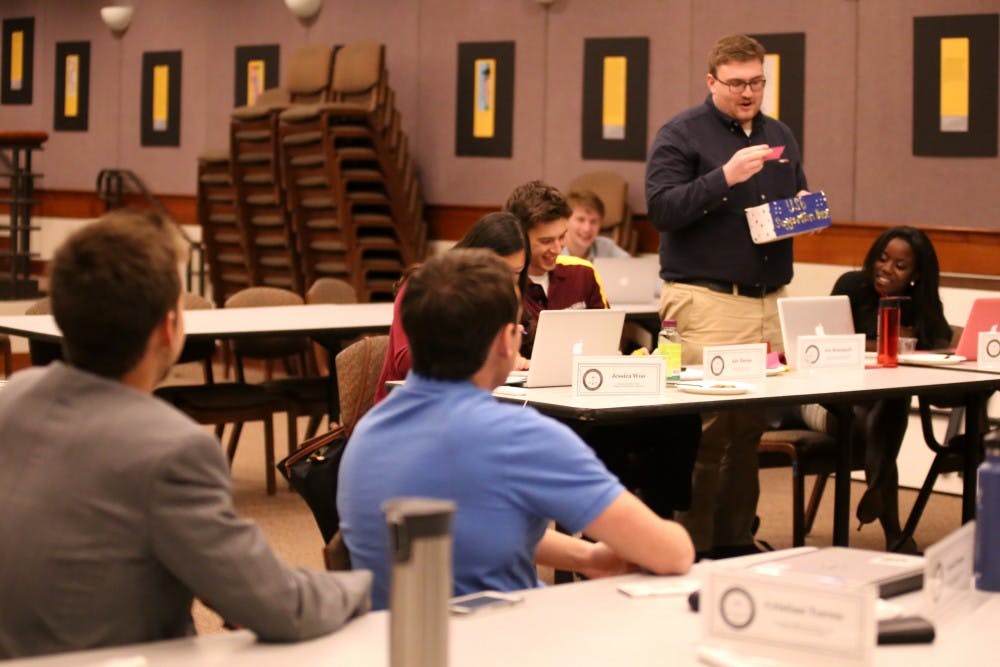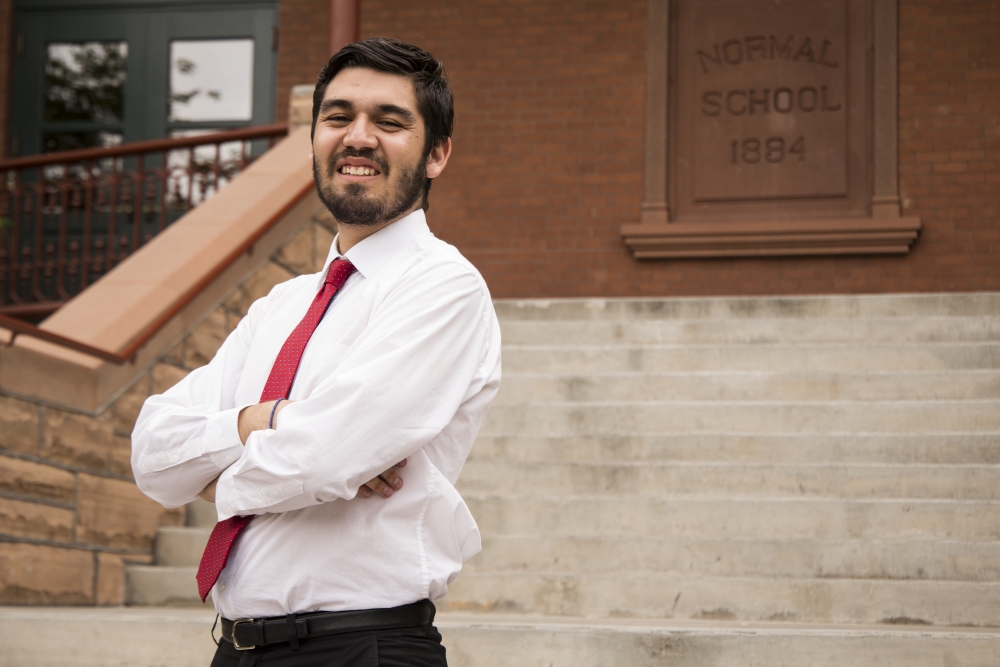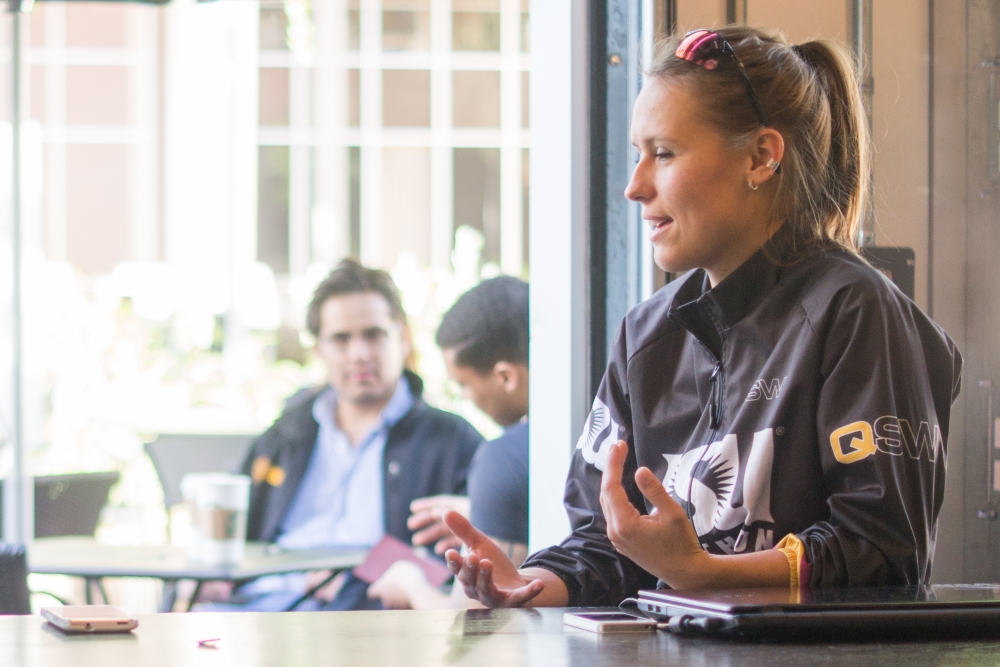The Undergraduate Student Government appropriations process is responsible for funding student clubs and organizations. It is also responsible when these bodies do not receive enough funding.
Student clubs and organizations on the Tempe campus have to receive their funding from the USG appropriations committee, with the exception of Sun Devil Sports Clubs. Tempe USG appropriates funds to Sun Devil Sports Clubs as a whole, which then decides how much funding will be directed toward each club.
The appropriations process varies slightly between each campus. Students at Polytechnic have to go through the Student Fee Allocation Board, which is a branch of USG Polytechnic, to obtain their funding. Students at the West campus are required to submit requests for funding directly on the USG West website, and students at the Downtown campus fill out a Google Doc found on the USG Downtown OrgSync page.
Even though the given board or committee may be different, funds always come from the USG of their respective campus.
Election drama was present on the Tempe campus, leading up to a runoff election on April 6.
Current Tempe USG Chief of Staff Brandon Bishop won the runoff election by a slim margin on April 7. Although the Bishop ticket won with a majority of the vote, the results will not be official until an Associated Students of ASU case is brought to a close.
The case, Arena v. Ruben, was lobbied by Alex Arena. Arena is the current co-chair of the Tempe USG senate appropriations committee, and served as vice president of services on Aundrea DeGravina's presidential ticket. The suit alleges that Bishop's campaign stole a code used on social media by the DeGravina ticket.
With the campus' attention focused on its student government, concerns regarding appropriations made their way into discussion around the election.
After the appropriations committee receives and reviews a request for funding, it asks the leaders of the club to present themselves for a hearing, where they have to justify their petition. Sometimes, a given club will receive more funding than another, because they made a stronger case at their hearing. Arena said that does not always correlate with a greater, tangible need.
"I can't say Club A has a greater need," Arena said. "I can say they have demonstrated a greater need."
Organizations and clubs with active leadership have an advantage over other clubs when it comes time to apply for funding, he said.
"The organizations with the most active presidents and treasurers get the most funding," Arena said. "We can't help you if you don't ask."
Clubs' experience with appropriations
ASU Triathlon President Erin Swiatek said her experience with appropriations has been a frustrating, confusing process.
"I feel like the process is always very slow with what we're doing," Swiatek said. "I've struggled a lot with funding this year, and what to do."
Swiatek has been the president of the Arizona State University Triathlon club for the duration of the 2015-16 academic year. They were initially denied funding for the year, because her predecessor did not adequately fulfill the paperwork requirements to secure the funding.
"Our club was placed on probation level this year," she said. "Being on that probation level, we were given $0. They took pity on us and gave us $400."
Applying for club funding sounded straightforward at the onset of her tenure, Swiatek said. However, she was disappointed when no one from Tempe USG informed her that her club's individual funding would go through Sun Devil Sports Clubs, rather than through Tempe USG.
She was not informed of this until after she had filled out all of the relevant paperwork and made her request to Tempe USG.
"That experience has been frustrating," she said. "My experience in that office is that we're blown off."
Swiatek's opinion is not exclusive to USG outsiders.
USG officials working with appropriations
Aundrea DeGravina, the current chair of the Tempe USG appropriations committee, said the process of requesting and securing funds is unnecessarily arduous and in need of renovation.
DeGravina said she believes increased communication on the part of Tempe USG will help students understand the funds available to them, as well as how to request those funds. She said she also wants to streamline the process and do away with most of the paperwork involved with requesting funding. Rather than go through paperwork, she said she wants everything to be done through Google Docs.
Similarly, Bishop expressed a desire to improve the appropriations process. He said he wants to work with the new senate to help streamline the appropriations process.
"We want to make sure we have a healthy relationship with the senate," he said. "Really with the appropriations process ... to make sure every organization knows what's happening."
Bishop echoed DeGravina's concerns and said members of Tempe USG need to actively reach out to students to ensure everyone is on the same page regarding funding and how to obtain it.
"A lot of people feel like, sometimes, there's a lack of communication, or they feel like they don't know about all the changes that are happening," Bishop said.
He said he wants to work hand-in-hand with the senate to make funding requests online and easily digestible, so that people who do not have prior budgetary experience will be able to follow it.
Bishop said student government representatives have a responsibility to actively engage their constituents and does not feel Tempe USG does a good enough job currently.
"I think we're on the third floor of the MU, but organizations either don't like us, or organizations don't think that they can actually come up and ask us questions," he said. "So it's really just forcing all our directors and senators to different club meetings frequently so that the club leaders actually have a relationship with USG."
Bishop said he wants to change certain requirements regarding how clubs actually procure funding from USG. Currently, clubs need to have 10 registered members to be eligible for USG funding. Bishop said he wants to do away with the requirement so that clubs who are seeking to get off the ground can be given a fair shake.
Beyond that, increased student outreach will improve the appropriations process most, he said.
The cost of joining a club
Many sports clubs, such as Swiatek's, charge their members fees to join. On top of that, students have to pay a $25 fee to become part of the Sun Devil Sports Clubs network, she said.
Students applying for her club must pay a $150 triathlon fee, $25 to Sun Devil Sports Clubs, purchase their own bicycle, pay an average of $600 to participate in every race, pay for their own hotel rooms and purchase their own wetsuit for swimming events.
Students have no chance of reimbursement, Swiatek said. Being part of the triathlon club is purely an exercise of passion.
Outside of the membership fee, Swiatek's club is funded through sponsorships and donations by organizations such as Ironman. These fees and donations add up to about $10,000 for this year, she said.
"Ideally, I would say we should at least double that," she said.
Swiatek said she does her best to use that $10,000 toward her team's hotel rooms and equipment, as well as coach salaries, which amounted to $6,000 this year.
Although Swiatek had frustrations with the appropriations process, she said it seemed as though there were no clear cut directions on how to go about applying for USG funding.
DeGravina said a lack of communication between Tempe USG and the students it represents is responsible for ambiguities regarding how students receive funding.
"It's bureaucracy at its finest," DeGravina said. "We need to do more outreach and meet students where they're at."
Swiatek said individual sports clubs are in a unique position in relation to other clubs, because they do not receive their appropriations directly from USG. For this fiscal year, Tempe USG budgeted $110,000 toward Sun Devil Sports Clubs.
Tempe USG general club appropriations
Tempe USG Civic Engagement Director Nicholas Gunther said he took an interest in appropriations outside of his USG role. Acting wholly as a concerned student with a knowledge of how to navigate the USG system, he pulled budgets from previous years to examine how much money was going toward club funding, as well as how much of that money was being spent.
Gunther's concern came about during a debate surrounding the Student Programming Fee by $5.
"Naturally, I'd be very skeptical of that, knowing how burdened students are," Gunther said. "The more I looked at the budget, the more skeptical I was of the fee increase."
Gunther found that clubs have spent more and more of their allocated funds nearly every year since 2011.
Jaime Ingrisano, faculty adviser for Tempe USG, said it's beneficial for clubs and USG to spend every dollar they're given. Unspent money from each campus goes to a University pool, where presidents from each campus' USG can apply to receive the money for projects over the summer, such as new water bottle refill stations.
Although the leftover money still goes toward improvements at the school, it is taken out of the hands of the individual students.
Tempe USG Senate President Nicholas Haney agreed with Ingrisano and said making sure clubs spend most of their money enables them to ensure funding is going toward their needs directly.
"There's no value in cutting the spending," Haney said.
Appropriations Co-Chair Arena said USG tries to allocate funds to all clubs that request funding, without discrimination.
"Even if we wanted to — and we don't — we can't show preference for one club over another," he said.
Although USG cannot show preference for one club over another, Swiatek said she does not see enthusiasm toward club sports from USG representatives, and that she thinks the requirement for Sun Devil Sports Clubs to provide the individual funding gets in the way of clubs that have acute needs for funds.
"I would love it if they were able to find club sports outside of their general sports club funding," she said. "I would love more financial support from the school as we represent them."
Reach the reporter at jwbowlin@asu.edu or follow @mrjoshuabowling on Twitter.
Like The State Press on Facebook and follow @statepress on Twitter.








